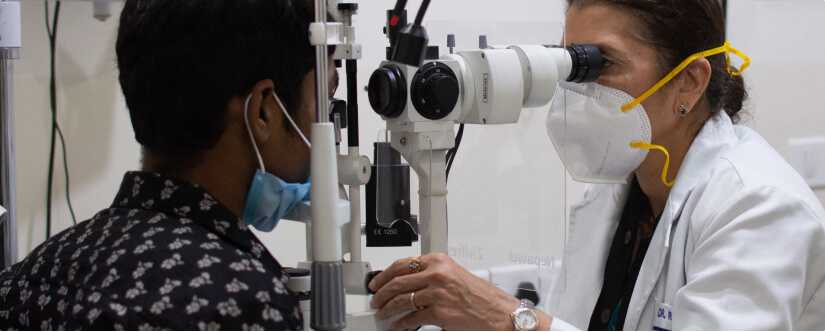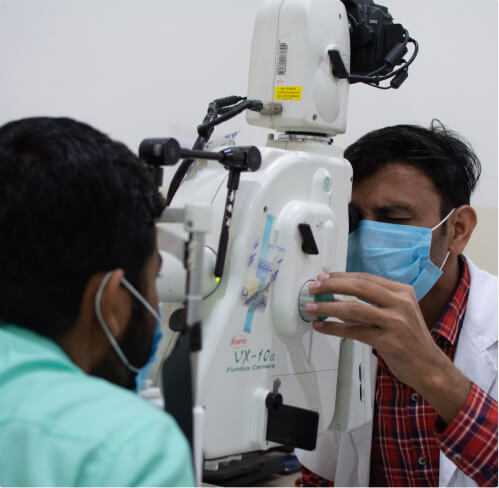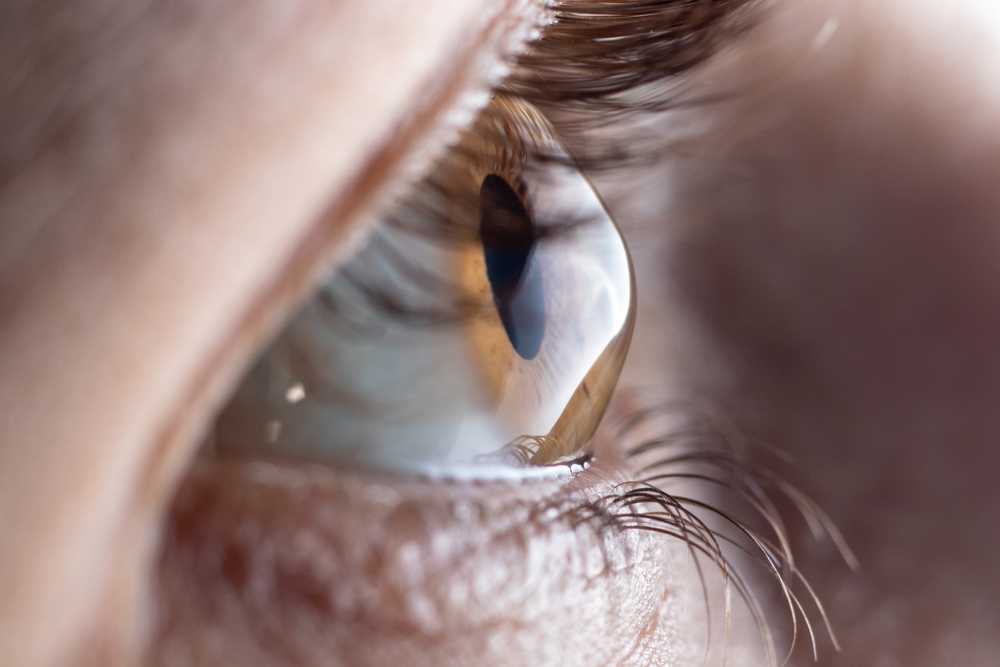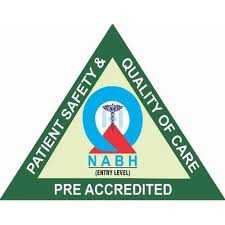Squint & Paediatric Ophthalmology
Give your child’s eyes the care they deserve- Delhi NCRs Best Eye doctor for kids
Have Any Query?
Enter Your Mobile Number For Call back
At Vision Plus Eye Centre we offer a child friendly environment for a thorough check up of your child’s eye. Our team is dedicated and experienced in handling complex eye diseases in children of all ages from premature babies to teenagers. The child’s eye is in a developing phase and as children are not able to express the problem, our Optometrists and Pediatric Ophthalmologists use specialised equipment to examine, diagnose and treat Pediatric eye diseases at an early stage. We offer medical and surgical treatment for all types of eye disorders in children like Squint, Lazy eye, ROP( Retinopathy of Prematurity), Congenital cataract and glaucoma, Eye injuries, infections and watering due to blocked duct. Many children have weak eye sight that often goes undetected, so routine eye check up for children is essential. We partner with schools and NGOs to conduct free eye screening camps.
Common Pediatric Eye Diseases
- Refractive errors
- Squint
- Lazy eye / Amblyopia
- Red Eye- infections / injury
- Retinopathy of Prematurity
- Congenital Cataract
- Congenital Glaucoma
- Watering-Congenital Nasolacrimal duct block
- Droopy eyes/ Ptosis
When should a child’s eyes be tested?
A routine eye check up is required at birth and at 6 months to detect any developmental or congenital anomalies that can affect normal visual development. Thereafter at school going age (3 to 4 years) and after every 2 years, regular vision test is required.

What are the signs of vision problem in children?
- Watering / rubbing of eyes
- Squinting- inward or outward, up or down deviation of eyes
- Squeezing or closing one eye in bright light
- Inability to make steady eye contact
- Head turn or tilt
- Wavering or wandering eye movements
- Difficulty in seeing far objects
- Looking at things from very close
- Headache
- Poor performance in school


How is the eye check up done for children?
Since a child’s eyes are different from adults, we do specialised tests. At VPEC our staff is trained to be patient, to make the child first comfortable and interact in a friendly way to put them at ease. Eye testing is done with special pediatric picture and symbol charts. For accurate spectacle power we need to dilate the eyes to relax the eye muscles and final glasses number is given after 2 days. Eye muscle balance is tested by Prism bar and synaptophore. We have a special Myopia control program to help stabilize the power of glasses.
When should children wear Spectacles/ glasses
If a child has wandering eyes, difficulty in seeing clearly, headaches, watering, frequent blinking, his/ her eyesight could be weak. At VPEC we do a complete eye check up for children. After dilation with drops, we check the power with Retinoscopy and Autorefractor. PMT (post mydriatic test) is done to fine tune the number. Our Optical outlet has a wide variety of frames for kids. Special Contact lenses are also available to reduce the dependency on glasses.

What is Squint / Strabismus
Squint (commonly called cross eyed) is a condition in which the two eyes are misaligned and do not move in a syncronised manner. Normally, the brain sends signals to the eye muscles so that both the eyes work together. Sometimes due to improper development, high power,prematurity, nerve paralysis, injury etc there is an imbalance between the eyes. It is important to detect and treat Squint at the earliest as it can result in lazy eye, double vision, loss of binocular vision and cosmetic defect if ignored.
What is the treatment for Squint/ cross eyes
If you feel that your childs eyes deviate inwards, outwards or vertically in an abnormal way, you must get it checked by an Eye specialist. A complete examination of vision,eye muscles and fundus is done including special tests for measuring the degree of squint and binocular vision. Squint can be treated by spectacles, exercises or surgery. Squint correction should be done early to regain proper alignment, depth perception and normal development of eye to brain connections. If left untreated it can lead to lazy eye or Amblyopia.Surgery is done under general anaesthesia and requires dissolvable stitches. The timing of surgery depends on the type of squint.
How is Lazy eye / Amblyopia treated
Lazy eye is when one or both eyes have subnormal vision. It can be due to refractive errors, squint or abnormal development of the visual system early in life. It is often missed as the child does not complain of any problem. It can be detected by routine eye examination. It should be treated at the earliest to help restore normal binocular vision. At VPEC we use advanced methods for treatment of Amblyopia- Spectacles, Exercises,Drops and medicines, Patching, Revital and Bynocs neural development programs.
What is the treatment for eye watering in babies
Many babies have watering from one or both eyes from birth or shortly after. It is usually due to incomplete development of the Lacrimal passages that connect from the eye to the nose. If there is a sticky discharge, consult your eye specialist. Usually antibiotic drops and massage helps to correct the problem. However, if it does not resolve by about 9 months, Syringing and Probing is required under general anaesthesia to open up the passage. Rarely, major DCR surgery is done if there is chronic infection.
What is ROP, how is it treated
ROP (Retinopathy of Prematurity) is a serious eye problem that can develop in premature babies who are born before 32 weeks, have low birth weight, high oxygen supplement and infections. It occurs due to inadequate development of the Retina ( the sensitive layer at the back of the eye). Dr Ajay Aurora is an ROP specialist and has been sought after by many major Multispeciality hospitals to provide eye services to such babies.Detailed fundus examination and timely laser is essential to save the vision of these premature babies. In advanced cases intravitreal injections or surgery maybe indicated.
How is Cataract in children treated?
Usually we hear of cataract surgery in older people. However, children too can suffer from cloudiness in their lens which can affect their eyesight. An opacity in the lens will block light from reaching the Retina and thus cause blurry vision. As the child’s eyes and brain are in a developing stage, cataract at an early age affects the visual development and if left untreated can result in a permanent lazy eye, squint and unsteady eyes(nystagmus).
Causes of Pediatric Cataract
- Congenital- Cataract present from birth due to genetic, infective or metabolic diseases
- Acquired- Develop after birth due to injury, diabetes, steroids, complication of other diseases like rheumatoid arthritis
What are the treatment options?
Depending upon the age and extent of cataract it may require immediate surgery ( Total/ central cataract in a baby) or surgery maybe deferred and managed with glasses or patching ( partial/ peripheral cataract in older child). The pediatric ophthalmologist will assess your childs eyes and decide the course of treatment.
How is cataract surgery performed in children?
Prior to surgery tests are done like Keratometry, Biometry,Fundus evaluation and B scan. The surgery is done under General anaesthesia. Your eye specialist will discuss the type of surgery and the visual prognosis. The options are Phacoemulsification with IOL implantation or Lensectomy. Intraocular lens implantation is usually advisable in older children. If IOL implantation is not done at the initial stage, the child will need spectacles or contact lenses to correct the vision.
Tips on Eyecare for Children
To keep your child’s eyes healthy, free from injury , infection and have good vision, following care can be taken
- Regular eye check- at birth, 2-4 years age and every 2 years
- Nutritious food- food rich in vitamins and antioxidants such as fruits and vegetables, nuts,eggs, fish
- Protect eyes against injury- Do not give sharp objects, chemicals, toys like bow & arrow etc that can result in grievous injury. In case of any chemical spill in the eye wash with copious amount of water. In case of injury with a blunt or sharp object, consult your eye doctor immediately
- Sun protection- use sunglasses, caps outdoors
- Regular outdoor activity
- Avoid excess digital screen usage and rubbing the eyes
- Maintain appropriate distance while reading, watching TV
- Avoid putting kajal in baby’s eyes

